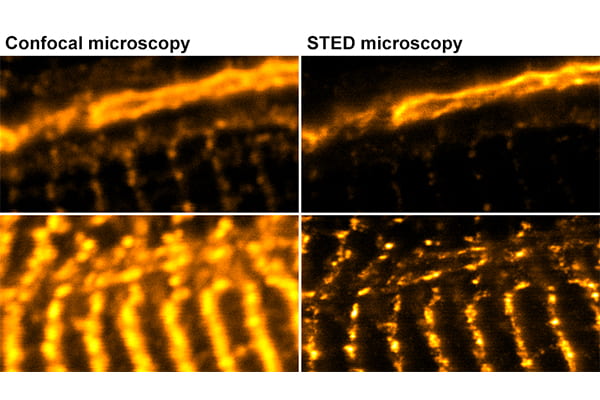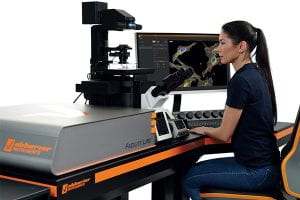The BIRU is delighted to announce that an Abberior Facility line stimulated emission depletion (STED) microscope has now been ordered and is due to arrive around February 2021. The new super-resolution microscope is specifically designed for core facilities with a redesigned user-friendly software interface.
The new system will complement and extend the capability within the unit and the technology is based on point-scanning confocal microscopy. The Zeiss LSM 800 Airyscan system, which arrived late last year is already proving popular with its enhanced resolution capabilities and the STED microscope will step this up to another level. This will be the first STED microscope in New Zealand.
Researchers who currently use fluorescence labelling techniques will be able to take advantage of the “super” resolution provided by STED while only needing small changes to their current staining protocols, such as selecting appropriate fluorophores. The system will have a 775nm depletion laser, which means STED microscopy will be possible for 2 channels, while other fluorophores can be imaged in confocal mode. The system will have adaptive optics to reduce aberrations induced when imaging deeper into tissue with three different 60x specialised STED objectives available for use with water, oil and silicone oil. A stage-top incubator is also included for those who want to carry out live imaging. The charge for using the system will be $60 per hour for University of Auckland staff/students.
The super-resolution microscopy working group for this project included the following School of Medical Sciences staff: Jacqui Ross, Praju Vikas Anekal, David Crossman, Andrea Kwakowsky, Waruni Dissanayake, Gus Grey and Brie Sorrenson. Fiona Moffat from the UoA Strategic Procurement Team ran the procurement process. Funding for the system was provided by the 2019 Shared Research Infrastructure Fund.

